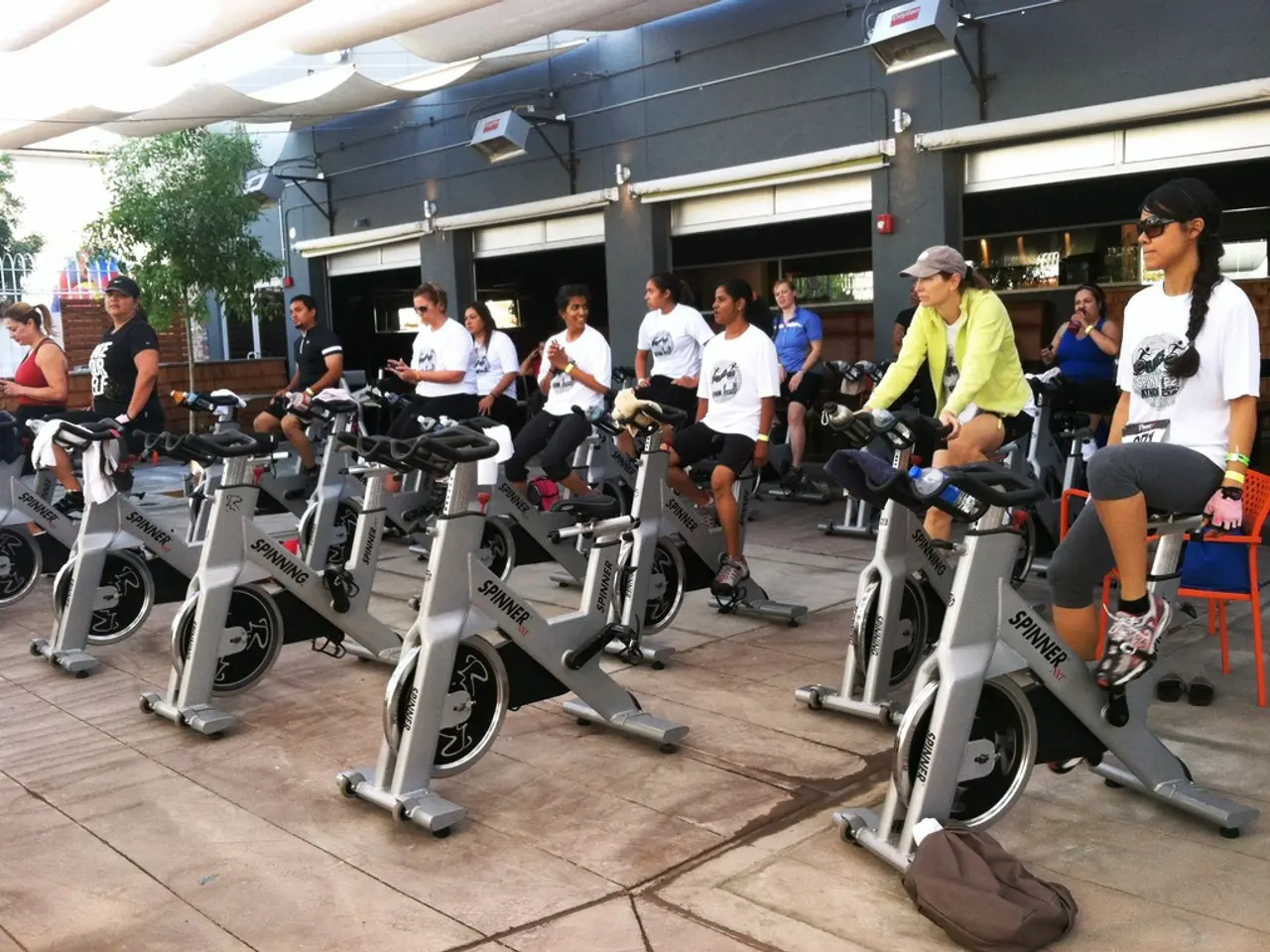Enhanced Rational Emotive Behavior Therapy Encourages Activity and Exercise Preparedness in Inactive Adults
In a groundbreaking study published in Frontiers in Psychology last year, researchers led by Martin J. Turner found that Rational Emotive Behavior Therapy (REBT) can significantly increase exercise participation and help overcome psychological barriers to exercise.
The research, which involved two participants from Scotland and England, aimed to explore the impact of REBT on individuals who were not currently engaged in regular exercise but expressed a desire to be. The study applied a five-week REBT intervention, delivered remotely, to help participants reduce self-defeating beliefs, increase motivation, readiness, and confidence to exercise.
REBT targets irrational beliefs such as perfectionism and harsh self-judgment, which commonly undermine motivation to exercise. During the intervention, participants learned to reframe negative thoughts into more balanced, compassionate perspectives. The therapy was delivered through five one-hour videoconference sessions, supported by homework exercises.
Psychological improvements were tracked using validated questionnaires, confirming that cognitive shifts aligned with behavior change. One participant began jogging again, while the other reported using techniques from the therapy to manage anxiety and stick with their goals. Statistical analyses confirmed these changes were not only meaningful but in some cases dramatic. One participant's irrational beliefs dropped from a score of 34 to just 8, while their self-determined motivation more than doubled.
The study's findings suggest that internal cognitive barriers, such as irrational beliefs, are as crucial to address as structural barriers in promoting exercise. The detailed idiographic approach allowed for deep insights into individual experiences, showing that even within the same framework, people respond at different paces and in different ways. Social validation interviews confirmed that the changes felt personally significant and extended into other areas of life for both participants.
However, the study's small sample size and single-case design indicate that further larger-scale research is necessary to generalize these findings widely. The structure of the program, with five weekly sessions supported by guided activities, mirrors formats already familiar in health coaching or behavioral programs.
REBT may offer a cost-effective way to support individuals who are motivated but feel stuck. As self-reported behavior changes should ideally be validated with objective activity tracking in future studies, this research opens up exciting possibilities for promoting exercise adherence in previously sedentary individuals.
[1] Turner, M. J., Frost, N., Outar, L., Tóth, R., Tóth, L., Chadha, N., & Wood, A. G. (2025). Rational Emotive Behavior Therapy for exercise: Examining self-determined motivation, alongside readiness, confidence, and motivation to exercise. Frontiers in Psychology, 16, 1557885. https://doi.org/10.3389/fpsyg.2025.1557885
- The groundbreaking study published in Frontiers in Psychology revealed that Rational Emotive Behavior Therapy (REBT) aids in overcoming psychological barriers to exercise and increasing exercise participation.
- REBT, delivered through five one-hour videoconference sessions, helps individuals reduce self-defeating beliefs and boosts motivation, readiness, and confidence to exercise.
- Researchers found that irrational beliefs like perfectionism and harsh self-judgment are significant internal cognitive barriers affecting exercise, and that REBT can reframe negative thoughts into more balanced perspectives.
- The study showed that psychological improvements aligned with behavior changes, with one participant taking up jogging again and another managing anxiety through techniques learned in REBT therapy.
- While the study's small sample size requires further larger-scale research, it suggests REBT may offer cost-effective ways to support motivated individuals struggling to exercise.
- The research offers exciting possibilities for promoting exercise adherence in previously sedentary individuals, as it opens up opportunities for validating self-reported behavior changes with objective activity tracking in future studies.
- The findings support the importance of addressing internal cognitive barriers, like irrational beliefs, in promoting exercise, and underscore the significance of this type of therapy in mental health, health-and-wellness, fitness-and-exercise, and overall psychological well-being.




